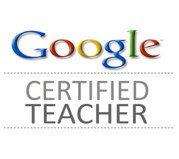As a 4th/5th grade teacher, I read a lot of middle-grades literature. I have noticed that it is not uncommon for the villain of the story to be a mean teacher or a teacher who doesn't really understand or appreciate children. Of course, as Mrs. Granger from Frindle wrote in her letter to Nick, "Every good story needs a bad guy, don't you think?" (Side note: If you haven't read
Frindle by Andrew Clements, put it on your to-read list NOW. It is a modern-day classic, a superb story for kids of all ages.)
I guess in the world of school-age children, teachers make an obvious choice for the bad guy character, and it does make a story deliciously fun, especially when the children (as they so often do) outwit the evil, stupid adult who previously made their lives miserable.
 |
| Image Search for "Mean Teacher" |
Yes, there are some stories where the teacher is the protagonist. But have you noticed how, in those stories, the teacher is often portrayed as someone special or unique, a hero because of how they actually care about kids as opposed to the other adults in the school (see Roxanna Elden's humorous take on this in "The Myth of the Super Teacher."
The Myth of the Super Teacher from
EdWriters on
Vimeo.
We need to stop this.
Right now.
Teaching is an amazingly challenging profession. Hopefully, people who choose to teach do so because they embrace those challenges and care about children. I was talking recently to a friend whose three children attend an exclusive private school. She told me that the parents' behavior toward teachers is, at times, abusive. I know that she is not exaggerating, as I have witnessed this behavior, too. And I believe the level of disrespect for teachers is growing and becoming mainstream, even acceptable.
Are there "bad teachers" in schools? Well....define bad. All of us, at one time or another, do things of which we aren't proud. We make mistakes. We realize that we did or didn't do something we shouldn't or should have done (or should have done differently).
I believe that teaching is much more than a job. It is a life, a calling, an obsession if you will. I believe that all teachers should be hungry to learn and grow, to improve, to write, reflect, create, and share work. I don't think all teachers are equal, and I feel frustrated when teachers act in ways other than as academic professionals. In other words, I hold very high standards for all teachers, and I am disappointed when my standards are not met.
That said, enough with the negative characterization of teachers.
Enough with the blaming.
Enough with expecting teachers to be perfect.
Enough with classifying teachers into "good" and "bad."
Let's explain to our children, ourselves and each other that we can learn something from everyone. Let's work on ourselves first as role models for children (because what are children learning when they see and hear their parents denigrate and complain about their teachers?). Let's maybe work on seeking out the positive.
And, of course, let's set high standards for teachers and students. Let's make it easy for schools to weed out incompetence (
without having to pay people while they sit in a room all day). Let's view teaching as an academic profession and expect our teachers to regularly read, write and practice whatever it is they teach. And let's make sure that teachers have sufficient time to do those things!

























